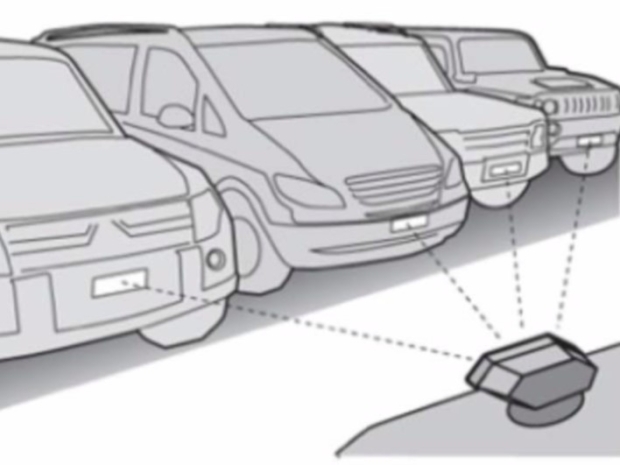The detailed photographs surfaced in search results produced by the systems of DRN Data, a licence plate recognition (LPR) company owned by Motorola Solutions.
The LPR system can be used by private investigators, repossession agents, and insurance companies; a related Motorola business called Vigilant gives cops access to the same LPR data.
Artist Julia Weist, who is documenting restricted datasets as part of her work, shows how those with access to the LPR system can search for common phrases or names, such as those of politicians, and be served with photographs where the search term is present, even if it is not displayed on licence plates.
Beyond highlighting the far-reaching nature of LPR technology, which has collected billions of images of licence plates, the research also shows how people's political views and their homes can be recorded into vast databases that can be queried.
American Civil Liberties Union senior policy analyst Jay Stanley said: "It reveals the extent to which surveillance is happening on a mass scale in the quiet streets of America... that surveillance is not limited just to license plates but also other potentially revealing information about people."
DRN told Wired that it complies with "all applicable laws and regulations." Over more than a decade, DRN has amassed more than 15 billion "vehicle sightings" across the United States. Its marketing materials claim that it amasses more than 250 million sightings per month.
Images in DRN's commercial database are shared with police using its Vigilant system, but images captured by law enforcement are not shared back into the more comprehensive database. The system is partly fuelled by DRN "affiliates" who install cameras in their vehicles, such as repossession trucks, and capture licence plates as they drive around. Each car can have up to four cameras attached, capturing images from all angles. These affiliates earn monthly bonuses and can also receive free cameras and search credits.
DRN president Jeremiah Wheeler said: "Licence plate recognition (LPR) technology supports public safety and community services, from helping to find abducted children and stolen vehicles to automating toll collection and lowering insurance premiums by mitigating insurance fraud."


